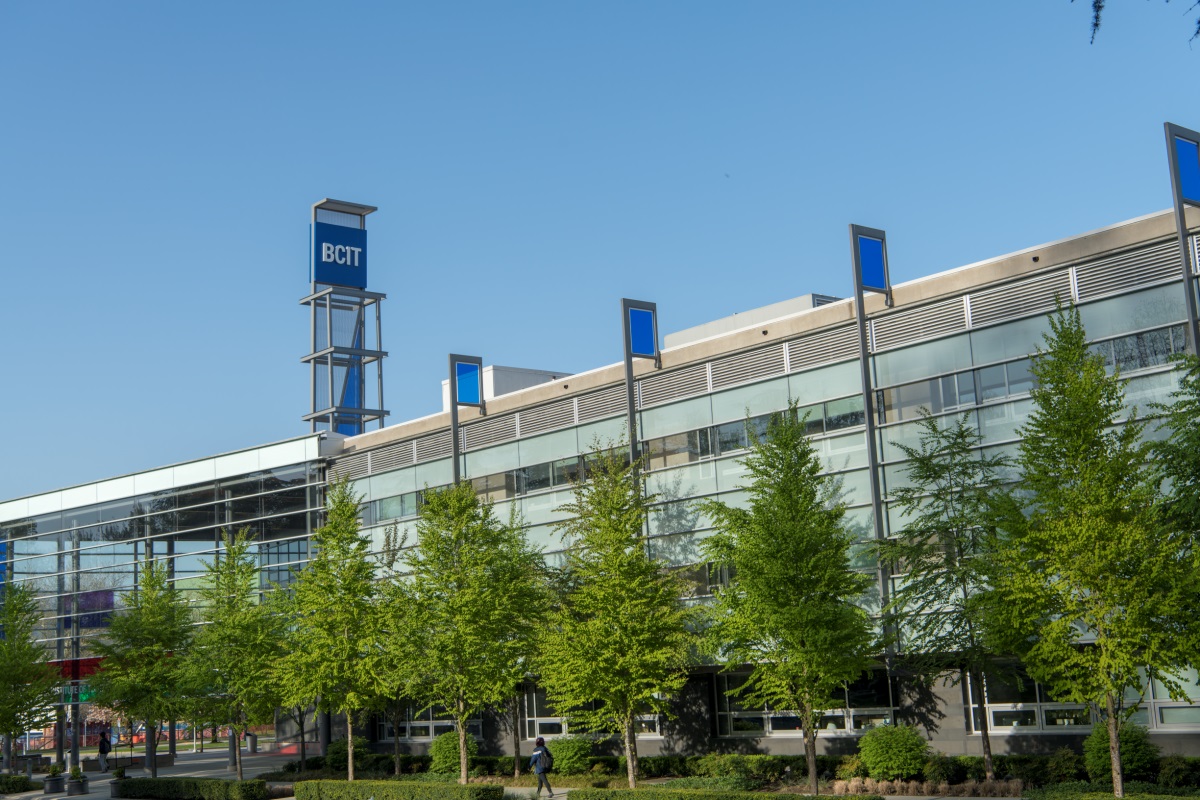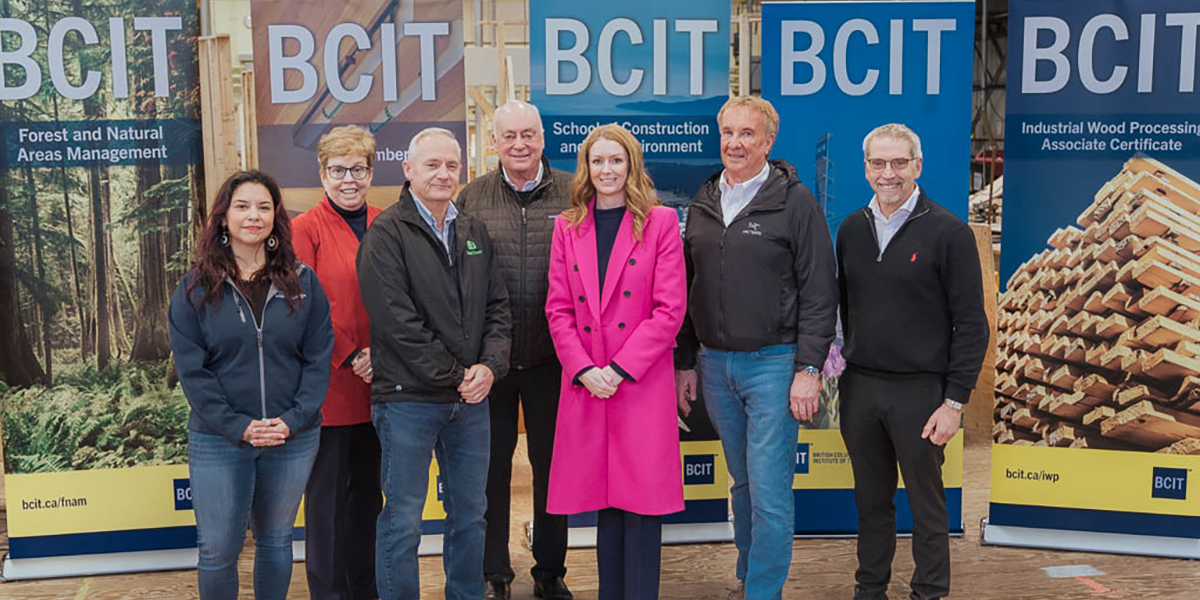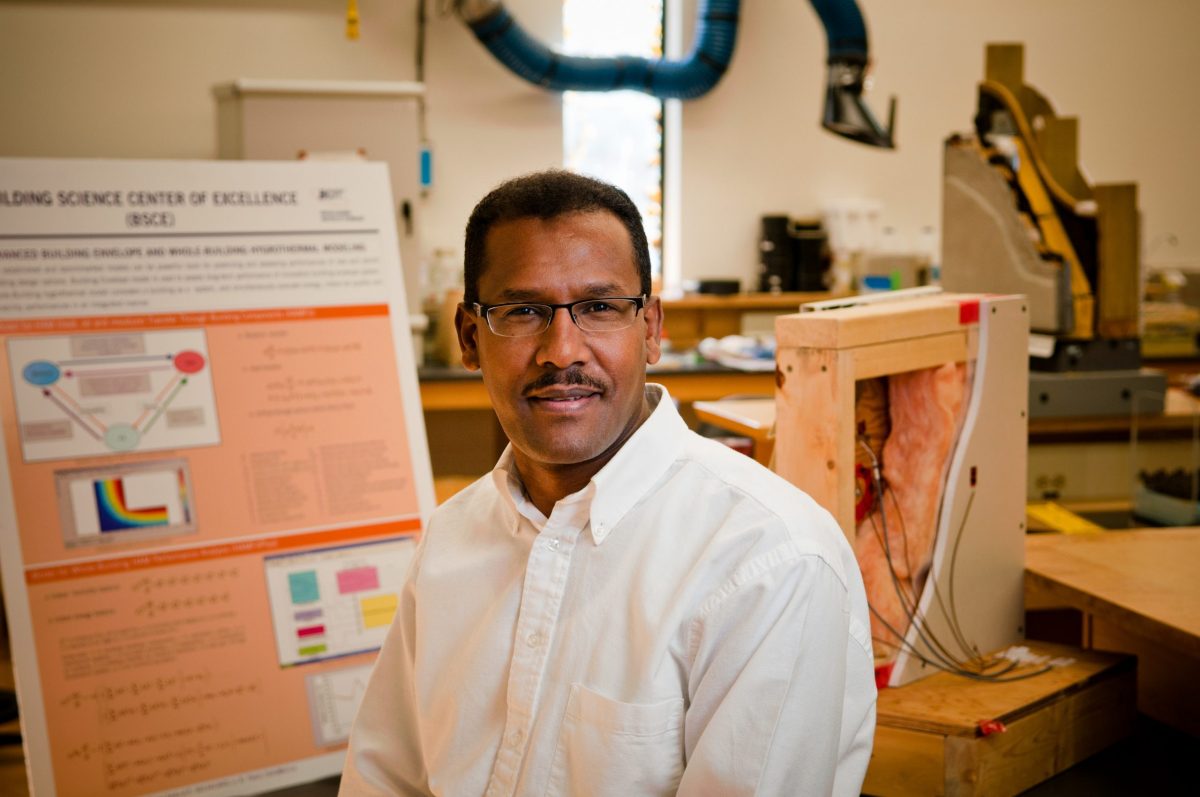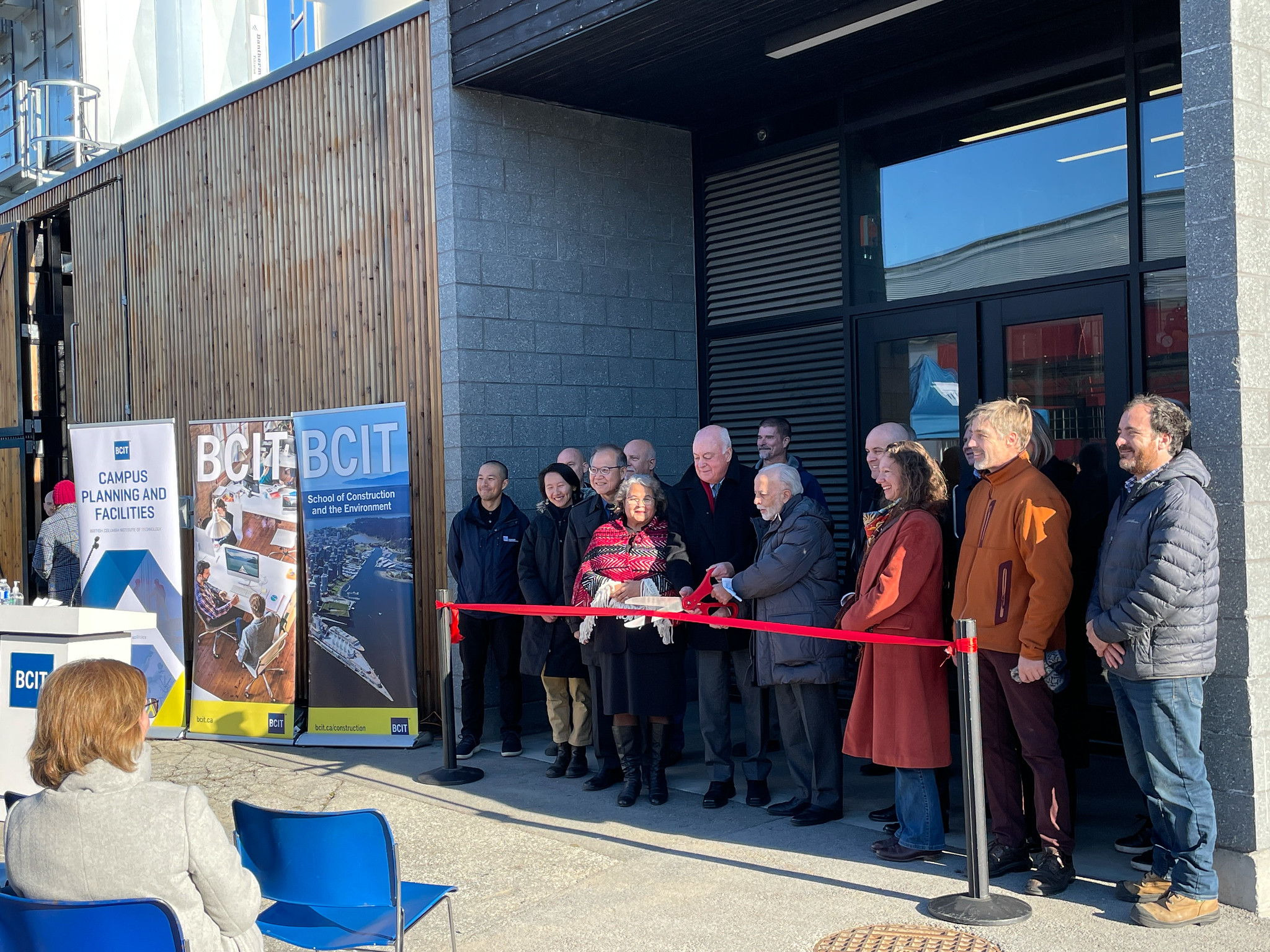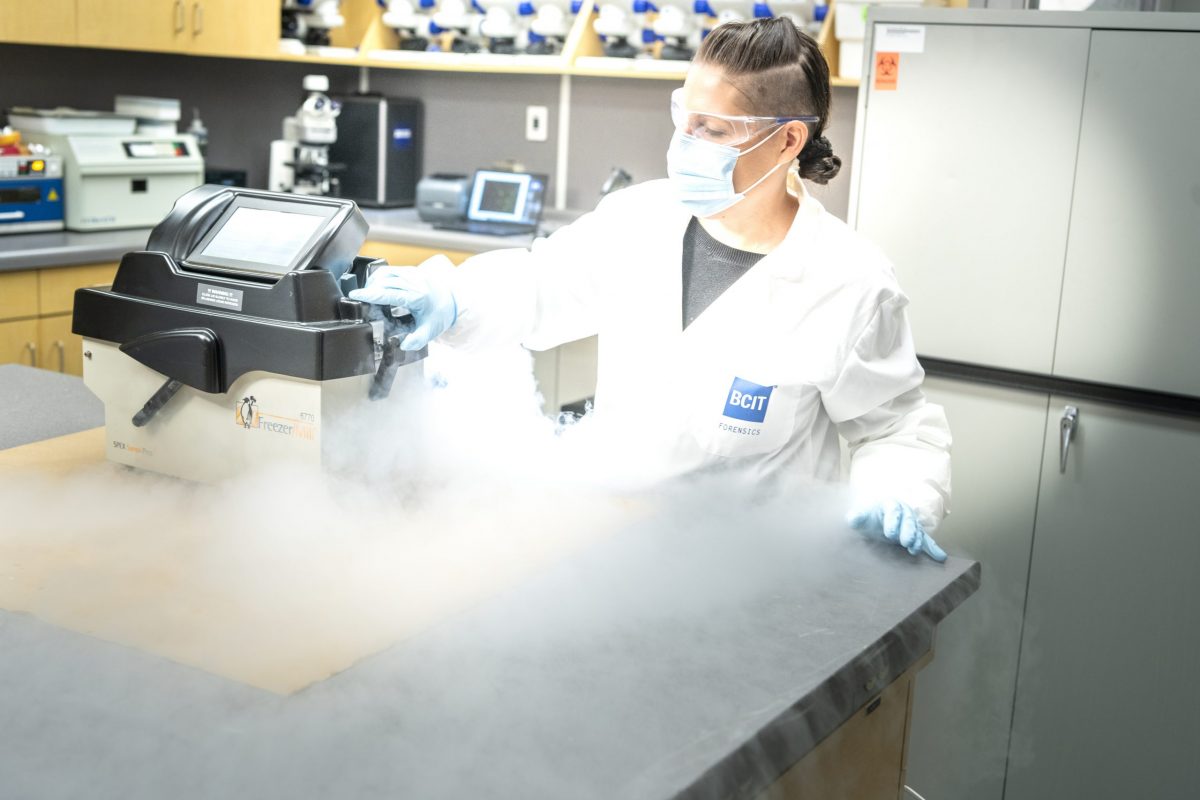BCIT has opened a new $1.5 million Wood Waste to Energy Centre (WWEC) at its Burnaby Campus which uses a biomass boiler to recycle wood waste into clean energy.
Every year, the Centre will use 250 tons of wood cut-offs and sawdust from Carpentry and Joinery programs to heat buildings at the Burnaby Campus. The project was supported with $340,000 from British Columbia’s Ministry of Environment and Climate Change Strategy Carbon Neutral Capital Program (CNCP) and brings to life elements of the province’s Clean BC plan. The project was also supported by $200,000 from the BC Bioenergy Network
The boiler which currently heats buildings NE2 and NE4 saves 1% of BCIT’s total emissions, equivalent to 75 tCO2e GHG. However, the system could be expanded in the future to save up to 240 tCO2e Greenhouse Gas annually, which equates to 3% of BCIT’s total emissions. The project will also reduce transportation emissions because the wood waste will no longer need to be trucked away from campus for disposal.
“This an exciting project,” said Danica Djurkovic, BCIT Vice President, Campus Planning and Facilities, “because it delivers significant GHG reductions while creating a more sustainable learning environment for students in our trades programs. We were delighted to work with the School of Construction and the Environment to develop this system which we believe could be adopted to use on a much larger scale in industries that produce wood waste. We will continue to prioritize reducing the Institute’s carbon footprint through future projects like the electrification of the main heating plant at the Burnaby Campus and designing new buildings that meet net zero emissions standards.”
SEE MORE: ‘Tidy Ted’ joins the custodial team at the new Health Sciences Centre
The Centre has three main elements:
- The system starts with clean, kiln-dried lumber off-cuts, which are sent to a chipper and cut into inch-long chips. These are stored in a silo and fed into the biomass boiler by an auger.
- The water in the boiler is heated by burning the wood chips and then piped to heat the adjacent buildings (NE2 and NE4). Fan unit heaters blow air over hot water coils to deliver warm air to the Carpentry and Joinery shop spaces.
- The exhaust from the boiler system is run through a multi-stage filter to ensure that it meets strict emissions regulations from Metro Vancouver.
A partnership project
The project is a result of a close partnership between the BCIT Campus Planning and Facilities Department and the BCIT School of Construction and the Environment. Students played an important role in the project by building the timber structure for the roof of the boiler house, fabricating and erecting the steel structure for the chipper enclosure, improving the chipper metal hopper, completing the air dispersion modelling required for the permitting, completing a noise control study, and much more.
“The low-carbon heating system serves as a great example of a living lab. Trades and technology students were involved in the planning, design and construction of the facility.”
Particularly proud of the student involvement in the project, Wayne Hand, Dean, BCIT School of Construction and the Environment, noted that, “the low-carbon heating system serves as a great example of a living lab. Trades and technology students were involved in the planning, design, and construction of the facility. Now that the facility is operational, BCIT students get to visit the site on a regular basis to learn about the maintenance and operation of a biomass-driven pressure vessel. This is the final element of a series of clean tech projects that reduced the School of Construction and Environment GHG emissions by more than 75% in the buildings where we teach Welding, Piping, Carpentry and Joinery.”
Climate action and adaptation remain at the forefront of the Institute’s academic and operational plans. Projects like this Centre show BCIT’s commitment in addressing the sustainability challenges we face here on campus, across BC, and around the world.
“Once again, BCIT is leading the way by actioning new ways to tackle the climate crisis,” said local Burnaby-North MLA, Janet Routledge, in a celebratory message to the BCIT community. “Every day you demonstrate your commitment to saving our planet. BCIT sets a standard that inspires us all and gives us hope at a time when it is desperately needed. Equally important, BCIT is training the next generation of environmental experts who will have the skills to meet existential challenges on behalf of us all. Congratulations to everyone involved in this wonderful initiative!”
This facility is a testament to what is possible through collaboration to build the necessary infrastructure to propel our journey towards a cleaner, greener province, and a sustainable future.

